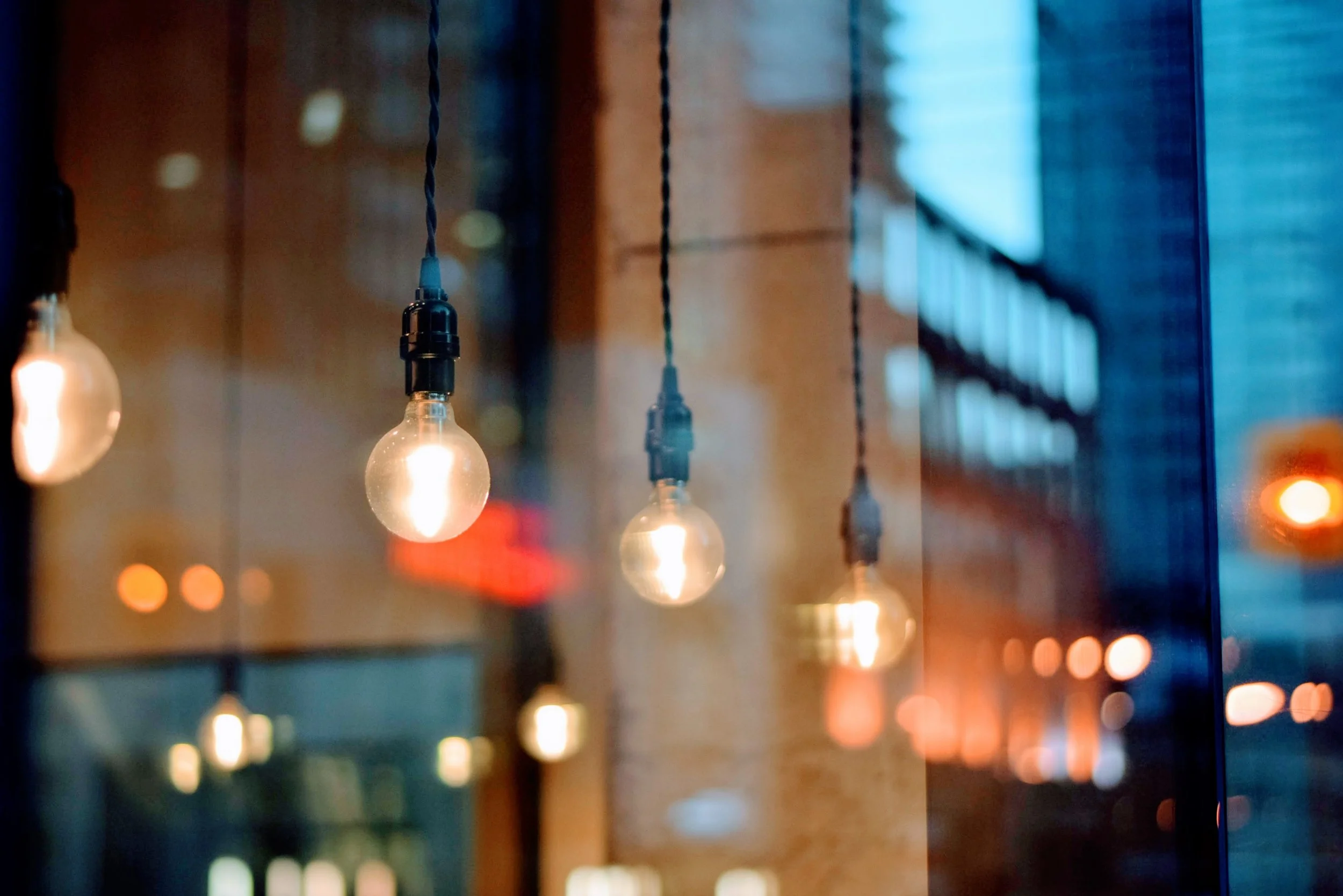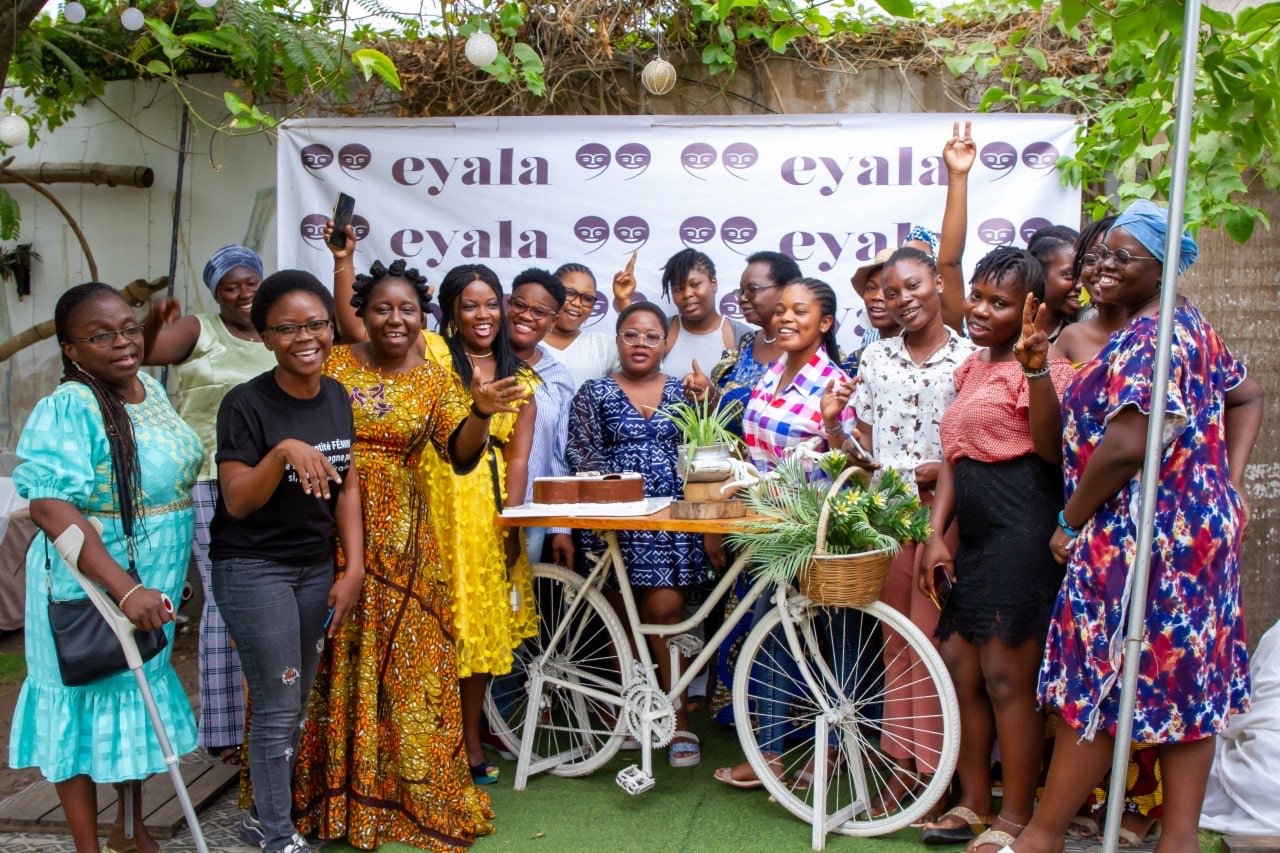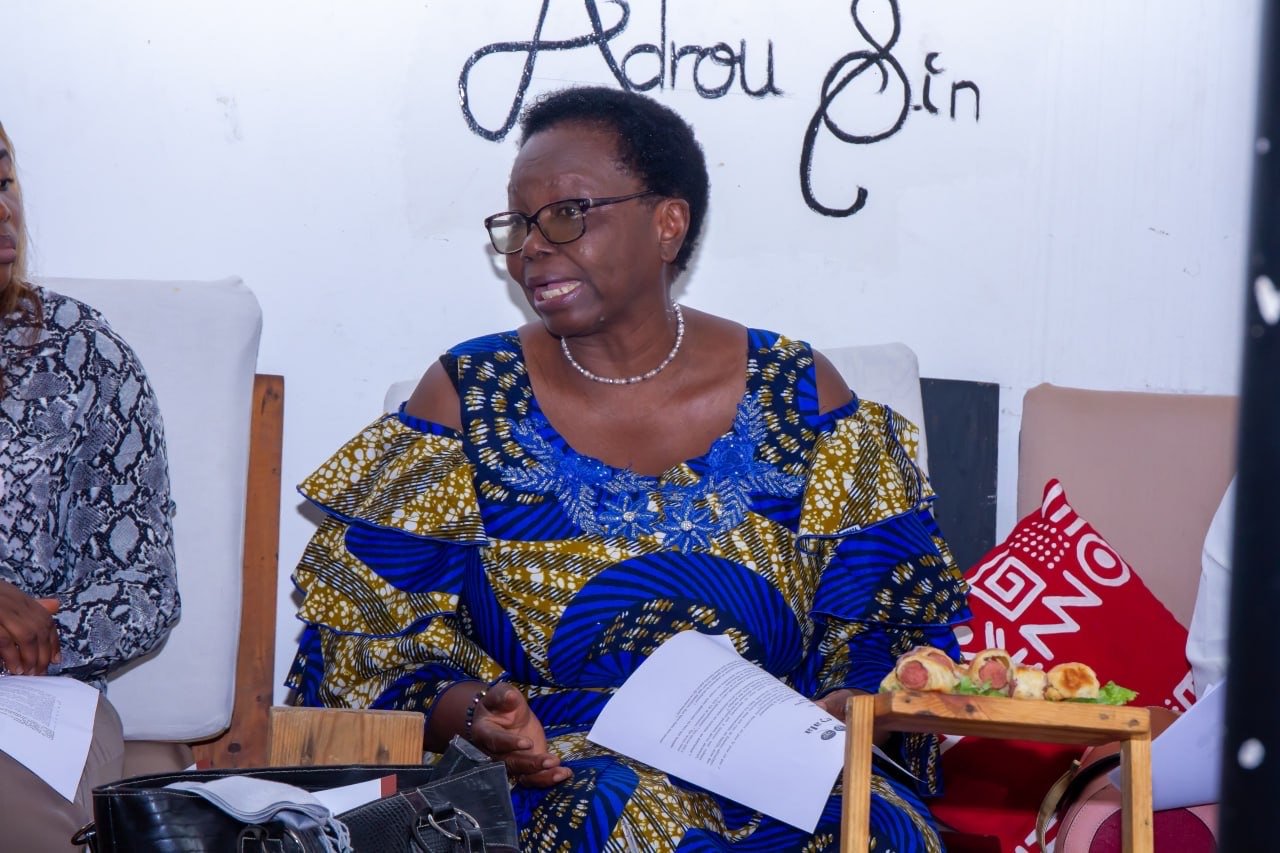“The Eyala Circle created a space to strengthen sisterhood” - Chanceline Mevowanou (Benin)
/Organizing the Eyala circle in Cotonou was an exciting experience. I was looking forward to meeting people with whom I share dreams and collective actions for the well-being and growth of girls and women in Benin. With the Eyala Circle, this became a reality.
On January 28th 2023, Beninese feminists welcomed their first Eyala circle. The event took place in Cotonou at Jardin de Canelya. When I think back on the circle, the sense of well-being, vulnerability, and self-renewal that I felt during the discussions is what comes first to mind. Along with the physical and emotional exhaustion I felt at the end of the circle. I fell asleep as soon as I got back home. I had been invited to go see a play in the evening on the same day. I didn’t go to this show because I slept so heavily after the circle that I had forgotten about it.
The Eyala Circles are authentic and intense moments of sharing. It’s something one has to experience to understand it.
In Benin and many French-speaking West African countries, there is always enthusiasm and engagement for spaces and conversations that focus on authentic feminist experiences. I’ve seen it in Ivory Coast, in Senegal, in Niger... Because feminist circles where we don’t come to talk about work and/or our knowledge of some feminist concepts aren’t common nowadays. I don’t know if such circles have existed in the past. The need for safe, intimate spaces where feminists can tell their stories and allow themselves to be vulnerable is real. It’s something many feminists are aware of.
Océane, a fellow feminist sister often tells me about this when we talk. She feels that our jobs within organisations and the search for thematic expertise have taken up too much of our activism. While we rarely look at how we live and embody feminism in our lives or not. When I sent out the invitations for the Cotonou Eyala circle, she was on a trip to Mali and Guinea. She returned from her trip at 5am that day and came to the Eyala Circle later that morning. She didn’t want to miss it. At the end of the Circle, this is what she had to share about her experience:
“The circle was interesting because feminists were given a space to talk about something other than what they do. They were asked about their intimate relationships with feminism as an identity.”
There were about twenty participants in this circle. Some of the feminists I knew, and others I didn’t; older feminists as well as younger ones. Not to mention women who are at the start of their feminist journeys, and are beginning to claim a feminist identity. There was food and drinks, at the center and in front of us. We were in a green environment… quiet and serene.
I took the time to observe the interactions as the participants arrived for the Circle. For most of us, it was like a reunion. We never really stopped seeing each other. However, we often only met for activities around our jobs and our projects. And so, the energy was different for the circle. I was grateful to see the friendly atmosphere as soon as the participants arrived and settled in. Smiles, positive energy, hugs... It reminded me that we need to set up spaces for ourselves. And I’m even more convinced by Kifayath’s feedback on the Circle.
“For me, the circle was a space of discovery and sharing of experiences. I felt free and happy to express myself without filters. I loved the good-natured atmosphere that prevailed throughout the session.”
As an introduction to the discussions, I spoke about Eyala and the spirit of the circles we organize. For many, it was their first time hearing about Eyala. Others already followed and knew our founder Françoise Moudouthe. We discussed the theme “Our feminist lives”. The idea for this circle was to explore together our personal experiences as African feminists and to challenge our feminist lives, in an intimate and safe setting. The beauty of the Eyala Circle is that nothing is imposed, fixed, or prepared when it comes to what to share. The circle unfolds following what the people present want to share.
The exchanges started by focusing on our memories of our first moments of feminist consciousness. Many of the participants in the circle knew each other, but mostly through their activist work, as members or presidents of different organizations. To create deeper bonds, and to establish trust, there was a need to (re)discover one another, to know the story behind the activist. This circle created the space to strengthen sisterhood among us because by becoming closer and by having more intimate conversations, we reinforce solidarity. This was demonstrated by the feedback at the end of the discussions. For instance, Axelle talked about how she felt throughout the circle:
“The Eyala Circle made me feel like I belonged to a community. A community of people determined to put an end to anything that enslaves women. It’s amazing.”
Some interesting stories were shared during the discussions. Someone recounted that when she was a student in her school, girls were not allowed to be class leaders and boys did not clean the classroom. She felt that this was unfair and made it her goal to become a classroom leader and to implement cleaning for all students, girls and boys. She succeeded with great determination. This was the beginning of her feminist journey.
For another, it was having been a victim of sexual harassment by a professor at university that triggered her feminist consciousness and the will to advocate and embody a new social order where young women evolve without being subjected to sexist violence.
We listened to a participant who shared her story of being an African woman living with a disability and fighting to change the reductive narratives about people living with disabilities. It was one of my favorite moments of the circle. She shared how instrumental her mother’s support has been in her life. Her story reminded us of the power of love and community. We are all connected and interdependent. These connections are areas of power where we can operate to leave no woman behind. But we often forget this in a world where the individualism induced by our systems makes us believe we are powerful on our own. Hearing her story made me realise more than ever that no one is voiceless. There are invisibilised and silenced voices, voices we don't hear...but not voiceless people.
The conversation also focused on the way we personally embody feminism, if we succeed in doing so, and how we feel when we do not. I noticed that these were issues that weren’t often discussed. Because the praxis of feminism through the implementation of projects appears to be the way we experience feminism the most. It’s mostly through these achievements that people also try to evaluate us.
Many explore this topic during the circle, especially through the lens of “doing - what I do” and also through the lens of “being - who I am, what I embody”. Nonetheless, we listened to many resonant stories. Stories that honor our humanities. Some of these stories revealed that there is a whole journey between saying “I am a feminist”, having the will to become one, and “truly living feminism”. Personally, and collectively.
We listened to the survivors of sexual violence among us who shared their journeys and how they now try to heal and embody a kind of feminism. The experiences shared took us through every emotion: smiles, laughter, tears, heavy silences... We listened to one another. Many of us felt seen and welcomed.
“I felt free. Free to be me, to be real. Because I was surrounded by benevolent people who accepted their wounds. I liked that it happened in a garden and all that was offered for us to enjoy. I liked the soothing atmosphere.”
Towards the end of the discussions, we listened to older feminists who shared how they experienced their feminism and the legacy that’s left for the younger generation. A lesson I took away from this part of the conversation is that as young feminists, our goal shouldn’t be to constantly point a finger at our elders without looking for ways to do better. We should use our elders’ resources, learn from their experiences, and aim to work with them.
We all acknowledged that these conversations are important and necessary to build our movement. Conversations are part of the tools we have. It is through conversation that we can overcome judgment, know each other better, and share our thoughts. I’m hopeful that we’ll hold other Eyala circles in Cotonou. Because this first circle was an unforgettable experience for me and the participants.










